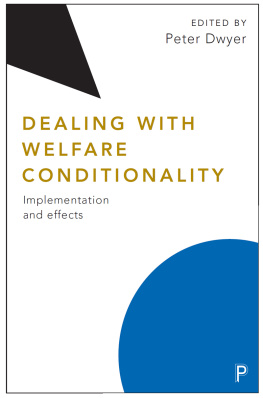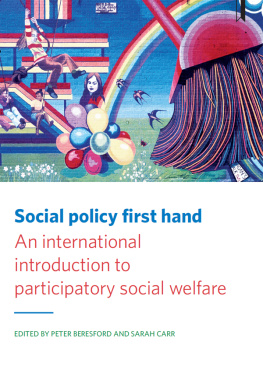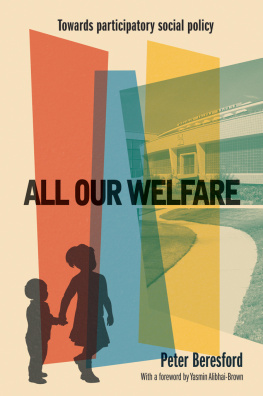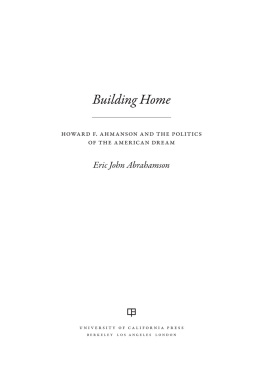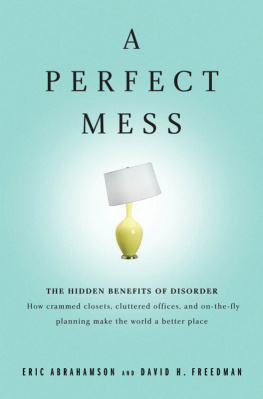Welfare and Families in Europe
PETER ABRAHAMSON,
Copenhagen University, Denmark
THOMAS P. BOJE,
Roskilde University, Denmark
BENT GREVE,
Roskilde University, Denmark
First published 2005 by Ashgate Publishing
Reissued 2019 by Routledge
2 Park Square, Milton Park, Abingdon, Oxon, OX14 4RN
52 Vanderbilt Avenue, New York, NY 10017
Routledge is an imprint of the Taylor & Francis Group, an informa business
Copyright 2005, Peter Abrahamson, Thomas P. Boje and Bent Greve
Peter Abrahamson, Thomas P. Boje and Bent Greve have asserted their right under the Copyright, Designs and Patents Act, 1988, to be identified as the authors of this work.
All rights reserved. No part of this book may be reprinted or reproduced or utilised in any form or by any electronic, mechanical, or other means, now known or hereafter invented, including photocopying and recording, or in any information storage or retrieval system, without permission in writing from the publishers.
Notice:
Product or corporate names may be trademarks or registered trademarks, and are used only for identification and explanation without intent to infringe.
Publishers Note
The publisher has gone to great lengths to ensure the quality of this reprint but points out that some imperfections in the original copies may be apparent.
Disclaimer
The publisher has made every effort to trace copyright holders and welcomes correspondence from those they have been unable to contact.
A Library of Congress record exists under LC control number:
ISBN 13: 978-0-8153-9896-7 (hbk)
ISBN 13: 978-1-351-14320-2 (ebk)
Peter Abrahamson is Associate Professor of Sociology at the University of Copenhagen. His research interests revolve around comparative analyses of welfare state issues, such as poverty, social exclusion, changes in social policy governing, and the social dimension of the European Union. He has recently published his work in Acta Sociologica, Journal of European Social Policy, Social Policy and Administration and Journal of Societal and Social Policy. In 2003 he published Local Partnerships in Europe (The Copenhagen Centre) together with Louise Kjr.
Thomas P. Boje is Professor of Social Sciences (welfare and labour market) at the Department of Social Sciences, Roskilde University, Denmark. His research is mainly concentrated on comparative studies: one study analysing the relationship between womens labour market involvement, caring obligations, family policies in different European welfare systems and another study analysing the Non-profit Sector and its economic, political and social impact on the Danish society in a comparative perspective. He has published widely on labour market, gender, citizenship and flexibility.
Bent Greve is Professor in Welfare State Analysis and Head of the Department of Social Sciences, Roskilde University, Denmark. His research areas are welfare state and labour market in comparative perspective. He has published extensively on subjects such as social security, tax expenditures, public sector expenditures and financing, labour market development and labour market policy.
This book records research results from a study carried out from 1997 to 1999 by the Department of Social Sciences, Roskilde University, Denmark. It was partly financed by a grant from the Danish social science research council. The study was conducted by associate Professor Peter Abrahamson, (now) Department of Sociology, University of Copenhagen, and Professors Thomas P. Boje, Department of Sociology, Ume. University, Sweden and (now) Roskilde University, and Professor Bent Greve, Roskilde University. It is a comparative study, and parts of the data were collected on location. In setting us up in the field, we received invaluable help and accommodation from Thomas Bahle and Astrid Pfennig, Mannheimer Zentrum fir Europisches Sozialforschung, Universitt Mannheim, Baden-Wrttemberg; Professor Denis Bouget, Maison des Science de Lhomme Ange Gupin, Universit de nantes; and Professor Jonathan Bradshaw, Department of Social Policy and Social Work, University of York. We are grateful to our interviewers Claus Wendt (Mannheim, Germany), Isabell Kaufmann (Nantes, France), Christine Skinner (York, Great Britain), Grit Bykilde (Roskilde, Denmark) and Anna-Lena Almqvist (Ume, Sweden).
The book results from a collaborative and collective process. was written jointly by Peter Abrahamson and Bent Greve. Many thanks to Barbara Hadenfeldt, Institute of Urban and Regional Development, University of California, Berkeley for correcting our incomplete English.
Copenhagen, August 2004
Peter Abrahamson
Thomas P. Boje
Bent Greve
Chapter One
New Models for the Provision of Social Welfare and Social Citizenship in Europe: Are Recent Changes Perceived or Real?
We do not believe our welfare societies are in crisis; but we do observe that they are undergoing change. The main purpose of this study is to analyse changes in the structure of the national European welfare states and altered social conditions for organised collectivism, or social solidarity, in post-modern welfare societies. The main focus of the study is how family, work, and the welfare system relate to each other, which depends upon how the state, the market, and civil society are related in the different welfare regimes.
The ongoing post-modern transformation calls for new reflections on the changes in social conditions for social solidarity and citizenship. In our study, this is done in a comparative perspective by analysing the development of welfare provisions in societies representing different types of welfare mix between state, market, and civil society (see Evers 1990). We have used the comparative approach because it is not possible to obtain a satisfactory understanding of the different types of welfare systems by generalising from specific national experiences. Our study includes Denmark, Sweden, Germany, France, and the United Kingdom, each representing a different type of welfare state regime influencing the relationships between the family, the labour market, and the welfare system (see, e.g., Esping-Andersen 1990; 1993; Leibfried 1992; Langan and Ostner 1991; Lewis 1992).
During recent decades, the search for new models for organising the welfare system and providing social services has been a main concern in all the European welfare societies. This concern was clearly formulated in the Green Paper on social policy from the EU Commission:
we are in the middle of a realignment of the functions of the state, of enterprise and the family, such as took place in the course of the industrial revolution the role of the welfare state may have to be reassessed, not only because of the funding pressures but, more fundamentally, because of the need to move towards more active policies aimed at ensuring peoples integration into work and society (EU Commission 1993: 19).
A comprehensive restructuring of the economic and social systems in post-modern societies has already happened and has strongly affected the traditional bases of the welfare state systems. On the one hand, persistent high unemployment, skill redundancy, and a growing risk of social exclusion have increased the demand for social protection; on the other hand, the growing influence of economic liberalism at the political-economic level has led to retrenchment in social protection and tighter control of public expenditures. Any serious reform of welfare systems inevitably raises the issue of the social contract itself and calls for reconsideration of the rights and duties of both citizens and the state in all types of European welfare states.




